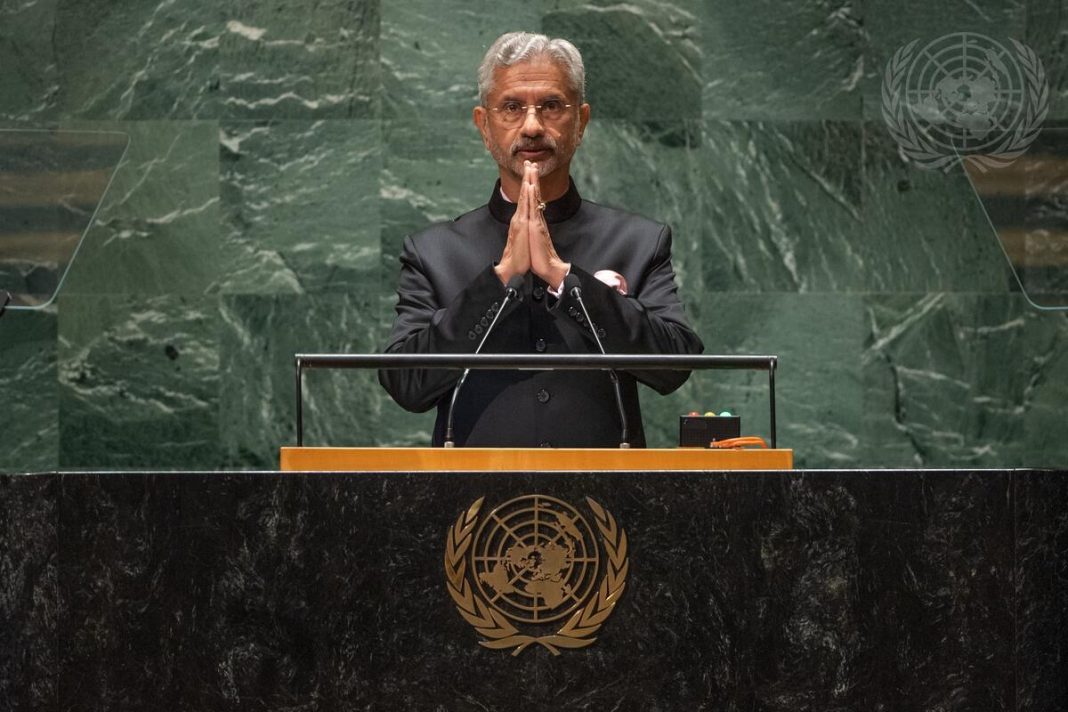
At the 79th UN General Assembly, Indian External Affairs Minister Dr. S. Jaishankar took to the stage to repeat familiar allegations against Pakistan, accusing it of sponsoring terrorism. While these accusations have become a staple of India’s foreign policy rhetoric, they are fundamentally flawed, lacking both credibility and evidence. In reality, Pakistan is a victim of terrorism, and India’s accusations are part of a broader political narrative designed to deflect attention from its own failings, including extraterritorial operations.
Pakistan’s Fight Against Terrorism
Pakistan’s record in the fight against terrorism is one of resilience and sacrifice. Over the past two decades, Pakistan has faced relentless attacks from terrorist groups, many of which operate with impunity in neighboring Afghanistan. Groups like the Tehreek-e-Taliban Pakistan (TTP) and various splinter factions have targeted Pakistani civilians, security forces, and infrastructure in an attempt to destabilize the country. Despite these challenges, Pakistan has mounted a robust counter-terrorism campaign, with military operations like Zarb-e-Azb and Radd-ul-Fasaad leading to the dismantling of numerous terrorist networks. These operations have not only restored relative peace in Pakistan but have also contributed to regional security. Pakistan’s success in reducing terrorism within its borders is recognized globally, with international actors often acknowledging the effectiveness of its counter-terrorism measures. Yet, India continues to accuse Pakistan of harboring terrorists, ignoring the ground realities. The truth is that Pakistan has been a frontline state in the war on terror, bearing a disproportionate share of the burden. India’s narrative, which paints Pakistan as the villain, overlooks the sacrifices Pakistan has made in this global fight.
India’s Extraterritorial Killings
While India accuses Pakistan of exporting terrorism, it is important to acknowledge India’s own involvement in extraterritorial operations that have raised serious concerns. India has been accused of targeting dissidents and separatists abroad, particularly Sikh activists and Kashmiri leaders. These actions have put India’s commitment to international law and sovereignty into question. One of the most glaring examples of this is India’s alleged involvement in the extraterritorial targeting of Sikh separatists, such as the prominent case of Gurpatwant Singh Pannun, an advocate for Khalistan, the Sikh separatist movement. These allegations suggest that India has not hesitated to extend its security operations beyond its borders, raising questions about its respect for international norms. The Indian government has largely remained silent on these accusations, even as international organizations have raised concerns about its methods. This silence stands in stark contrast to its vocal condemnation of Pakistan at international forums like the UNGA, where it consistently accuses Pakistan of terrorism without providing credible evidence.
Pakistan’s Call for Evidence
For years, Pakistan has challenged India to provide verifiable evidence to support its claims of cross-border terrorism. Despite repeated accusations, India has failed to present concrete proof. This lack of evidence speaks volumes about the credibility of India’s claims. In international diplomacy, accusations must be backed by facts, not rhetoric. Pakistan’s request for evidence is not a tactic to avoid responsibility but a reasonable demand in the interest of transparency and fairness. If India truly has evidence of Pakistan’s involvement in terrorism, it should present it to the international community for scrutiny. Until then, its accusations remain hollow and politically motivated.
The Role of Indian Media
Indian media plays a significant role in amplifying the government’s narrative on Pakistan. With sensationalist coverage, Indian media often portrays Pakistan as the source of all regional instability, ignoring the complex dynamics of terrorism in South Asia. This portrayal serves to distract from India’s own internal issues, including the situation in Kashmir, where Indian forces have been accused of widespread human rights abuses. By focusing on Pakistan, Indian media shifts attention away from these domestic challenges, creating a convenient scapegoat for India’s security issues. This tactic not only perpetuates hostility between the two nations but also hinders the possibility of peace and cooperation in the region.
Conclusion
India’s accusations against Pakistan at the UNGA are part of a broader political narrative that lacks credibility and evidence. Pakistan’s role as a victim of terrorism, coupled with India’s own extraterritorial activities, highlights the complexity of the issue. Instead of perpetuating baseless accusations, India should engage in constructive dialogue with Pakistan, focusing on mutual respect and cooperation for the sake of regional peace and stability.
